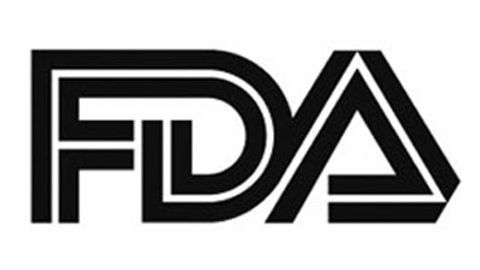FDA Grants Orphan Drug Designation to LP-184 for Malignant Gliomas
LP-184 is moving forward in the course of development and was granted an orphan drug designation by the FDA.

The FDA has granted orphan drug designation to the small molecule and next-generation alkylating agent, LP-184, for the treatment of patients with glioblastoma multiforme (GBM) and other malignant gliomas, according to a press release from Lantern Pharma.1
LP-184 has been shown to preferentially cause DNA damage in cancer cells that have over-expression of certain biomarker or that harbor mutations in the DNA repair pathway. The agent is being investigation in multiple cancers, including GBM and pancreatic cancer.
"GBM represents an important, underserved clinical opportunity, with a significant unmet medical need," stated Panna Sharma, president & CEO of Lantern Pharma, in a press release. "This second orphan drug designation from the FDA for the LP-184 program marks another major milestone and is further validation of the power of our data-driven approach to oncology drug development, aimed at more targeted and effective oncology therapies."
Preclinically, LP-184 induced tumor regression in 2 subcutaneous xenograft models of GBM, which was higher than 106% tumor growth inhibition. Survival in the study subject was extended following treatment with LP-184 given intravenously in 2 cycles. The agent also reduced subcutaneous xenograft tumor volume in the study subject by more than 85%. The study showed that just 1 cycle of LP-184 led to a statistically significant improvement in overall survival in subject treated with LP-184 compared with the control group (P < .0001). Based on these findings, Lantern Pharma plans to begin in-human clinical trials.2
"This new data that we reported, in collaboration with the Kennedy Krieger Institute and Johns Hopkins, on the efficacy of LP-184 in GBM cell lines, in-vivo animal models, and in patient-derived neurospheres, validated in-silico predictions generated by our RADR® A.I. platform. We believe LP-184's ability to cross the blood-brain barrier, together with its anti-tumor efficacy and sensitivity correlations with relevant biomarkers, highlight LP-184's potential to be used as both monotherapy as well as a synergistic agent in combination with other drugs to address the unmet needs in GBM and other aggressive central nervous system tumors,” Sharma stated, in a press release.
In another preclinical study, LP-184 showed strong nanomolar potency in non-small cell lung cancer cell lines. The agent exhibited anti-tumor cytotoxicity, underscoring that LP-184 may be beneficial in multiple solid tumors.3
The partnership between Lantern Pharma and Kennedy Krieger Institute, and Johns Hopkins has been expanded to continue the development of LP-184 across GBM subsets.1
“We look forward to further advancing the potential of LP-184 as a new, potent treatment option for GBM, especially in areas of unmet clinical need, including MGMT-unmethylated, temozolomide -resistant GBMs, and also EGFR-aberrant or recurrent GBMs, all of which are often associated with poor prognosis and outcome for patients,” said Sharma, in a press release.
REFERENCES:
1. FDA Grants Lantern Pharma additional orphan drug designation for drug candidate LP-184 in glioblastoma multiforme & malignant gliomas. News release. Lantern Pharma. August 30, 2021. Accessed August 31, 2021. https://prn.to/2V0aKF4
2. FDA Grants Lantern Pharma orphan drug designation for drug candidate LP-184 in the treatment of pancreatic cancer. News release. August 11, 2021. Accessed August 31, 2021. https://bit.ly/3kCCecF
3. Kulkarni A, McDermott JR, Kathad U, et al. The acylfulvene alkylating agent, LP-184, retains nanomolar potency in non-small cell lung cancer carrying otherwise therapy-refractory mutations. Oncotarget. 2021. 12:791-806. doi: 10.18632/oncotarget.27943
FDA Approves FoundationOne CDx as Companion Diagnostic for Tovorafenib in Pediatric Low-Grade Glioma
January 17th 2025FoundationOne CDx is now FDA-approved as the first companion diagnostic for tovorafenib, enabling targeted treatment for relapsed/refractory pediatric low-grade glioma with BRAF mutations or rearrangements.
Read More